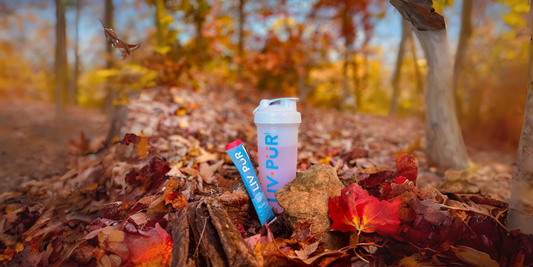Whether you’re looking for a plant protein for weight loss, muscle building, post-workout recovery, or a simple dietary supplement, you want to make sure you’re fueling your body with the best of the best.
Yet it’s not always that simple. When picking a high-quality plant-based protein that’s right for you, there’s a lot to consider.
Where does the protein come from? Is it a complete protein? Can your body easily digest it… or will you be left feeling bloated, crampy, and seriously uncomfortable? What about how it’s made?
Let’s face it, choosing the right protein powder goes way beyond just how many grams of protein it provides.
That’s why we want to help break it down for you. Let’s make choosing your plant-based protein just a little bit simpler. Because we all have other things we need to worry about.
What to Look for in the Best Plant-Based Protein
Here’s our complete guide to choosing the best plant protein powder for you… so you can stop researching protein powders and get back to the things that matter most.
High-Quality Protein Source
Like with animal protein, you have a number of options when it comes to vegan protein sources. They’re not all created equally, though. Here are the pros and cons of some of the most popular vegan options:
Brown Rice Protein
On its own, brown rice protein is not a complete protein, meaning it doesn’t contain the 9 essential amino acids your body can’t produce on its own and needs to obtain through food. That means for the most nutritional value, you’d need to combine rice protein with another protein powder as well. It doesn’t stand on its own.
Poorly sourced brown rice protein can also be high in arsenic, which is linked to a number of serious health conditions. However, in one study, researchers found that brown rice protein reduced weight gain more than soy protein. So if you’re looking to lose or maintain your body weight, a high-quality brown rice protein may be worth looking into.
Pea Protein
Pea protein is a complete protein, which means it contains all 9 essential amino acids, including BCAAs leucine, isoleucine and valine that you need to to fuel working muscles and effectively build muscle.
Pea protein also contains 3x more arginine than whey protein. Arginine is a semi-essential amino acid that has many health benefits in the body, including nitric oxide formation. This improves blood circulation. For an active individual, that means quicker recovery, improved endurance and reduced fatigue.
Soy Protein
Like pea protein, soy protein is a complete protein with all 9 essential amino acids (EAAs). While it contains these important EAAs, soy protein also contains phytates that can decrease mineral absorption and phytoestrogens that mimic estrogen in the body and throw off hormonal balance. Soy often also undergoes scrutiny as one of the most commonly genetically modified ingredients along with corn.
Hemp Protein
Overall, hemp protein is a high-quality plant-based protein. It contains all 9 essential amino acids. It’s also easier to digest and less processed than other vegan alternatives like soy. On the other hand, it tends to have an earthy taste that’s undesirable even with additional natural flavors mixed in.
Rich in Essential Amino Acids and Nutrients
Looking for a protein powder that’s rich in protein is an obvious choice. But we think it’s also important to consider the other nutrients and micronutrients you’re getting from your protein powder — just like you would any other meal.
For the most nutrient diversity, it’s wise to look for a blended vegan protein powder. For example, at LivPur, we’ve combined classic pea protein with pumpkin seed and mung bean protein for a boost in iron and magnesium.
Free From Artificial Additives
One of the biggest pitfalls of most plant-based protein powders on the market is the artificial additives and fillers companies add to the powder for better taste, texture, and consistency. While they may make the powders more enjoyable, they also lower the quality of your supplement and often make the powder harder to digest. Look for a protein powder with a “clean” label — free from any sneaky ingredients you can’t pronounce.
Manufacturing Standards
What’s the point in checking for quality sourcing if your powder ends up manufactured in a low-quality facility? Here are our standards: Look for a product that’s manufactured here in the United States at a NSF Sport certified and fully accredited FDA cGMP certified facility for the highest-quality manufacturing.
Our Recommendation for the Best Plant-Based Protein Powder
At LivPur, we’ve created our own plant-based protein powder made from pea protein, along with the added benefits of pumpkin seed, mung bean protein, and turmeric.
We’ve specifically formulated this vegan protein powder alongside Dr. Troy Van Biezen, who’s worked with athletes from the NFL, NHL, NBA, MLB, PGA, Olympics, and beyond.
We had one goal in mind as we created what we consider the best vegan protein powder on the market: Combine clean ingredients from reputable sources loaded with antioxidant and anti-inflammatory ingredients that allow you to live, train, and fuel like champions do.
Dr. Troy says himself, “I strongly feel we have developed a plant-based protein that allows my athletes to push themselves in their training and be able to elevate quicker to the next level of optimal performance.”
Click here to learn more about LivPur’s Vegan Plant Protein.




